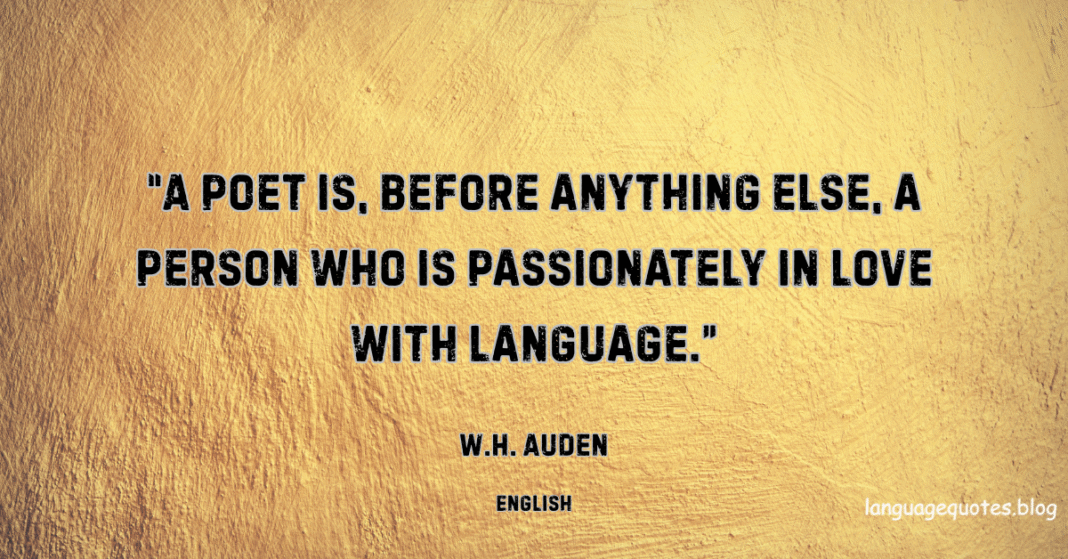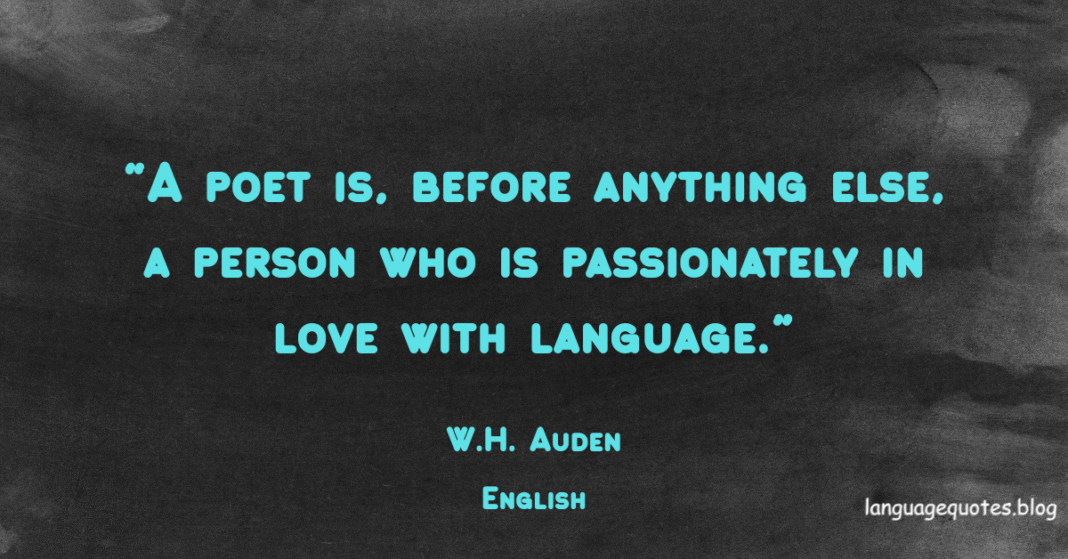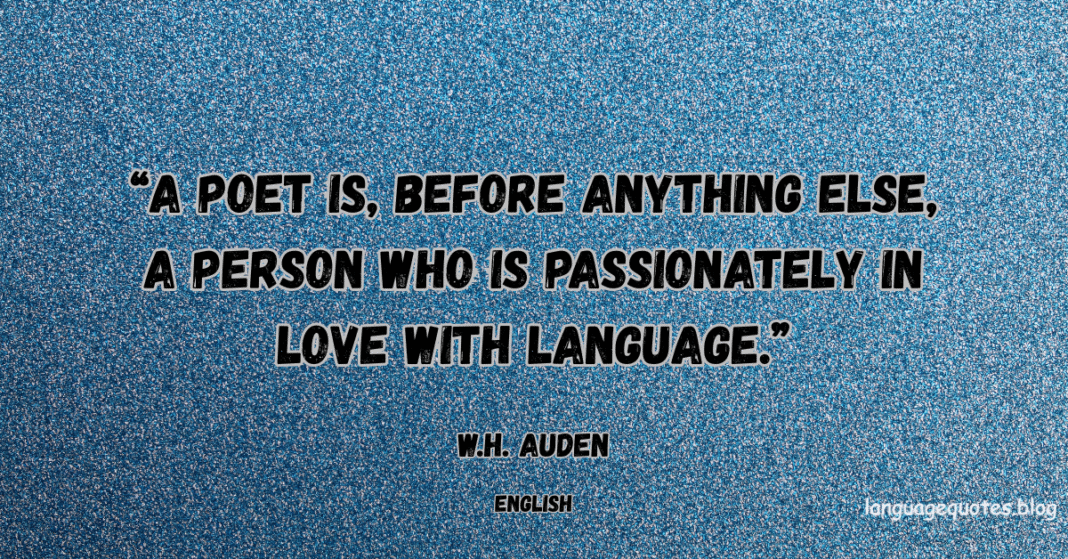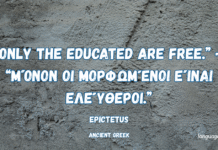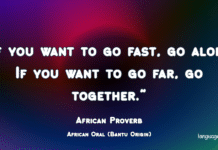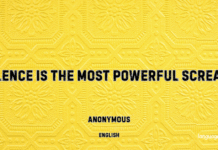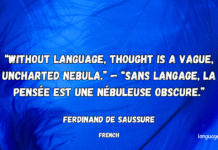“A poet is, before anything else, a person who is passionately in love with language.”
— W.H. Auden
🗨️ Two-Line Commentary:
W.H. Auden defines poetry not by structure, but by affection. To write verse is to romance language—to chase its moods, melodies, and mysteries with relentless love.
❤️ Introduction: Poetry Begins with Love—for Language
W.H. Auden, one of the most celebrated poets of the 20th century, offers a beautifully intimate glimpse into the heart of poetry with this quote:
“A poet is, before anything else, a person who is passionately in love with language.”
With this one sentence, Auden redefines the essence of poetry—not as a technical exercise, nor merely emotional outpouring—but as a deep, enduring romance with words themselves. This quote serves as both a tribute to poets and a lens through which we can understand the craft of writing more broadly.
Whether you’re a reader, writer, or someone drawn to the rhythm of words, Auden’s insight reminds us that language is not just a tool; it is the poet’s first love, and poetry, the act of worship.
✍️ Language: The Lifeblood of a Poet
Poets aren’t just people who rhyme well or express emotion—they are word-lovers first. They don’t simply use language—they explore it, stretch it, and sometimes break it, only to rebuild it more beautifully.
When Auden says a poet is “passionately in love with language,” he means that poets see more than meaning in words. They see melody, texture, history, emotion, rhythm, and mystery. They might spend an hour selecting one word—not because they’re indecisive, but because each word has weight, tone, and soul.
This love for language transcends grammar and structure. It’s about how language feels in the mouth, how it echoes in the mind, and how it dances on the page. For poets, language is not a medium—it’s the message itself.
🔍 The Poet’s Craft: Precision and Emotion
Poets are like sculptors of language. They chip away excess, rearrange structure, and polish verses until every syllable sings. The precision of their language is often misunderstood as complexity, but in truth, it reflects care and devotion to both meaning and form.
Auden himself was a master of form and function. He believed that the beauty of poetry lies in its ability to marry structure with feeling. This is only possible when one is truly in love with language—enough to know its rules, challenge them, and still respect the art of communication.
To fall in love with language is to appreciate silence, rhythm, punctuation, tone, and metaphor. It means seeing more than words—it means seeing the worlds within them.
💞 Why Passion Matters
The quote also touches on the idea of authenticity in art. Without passion for language, poetry becomes formulaic. A poet who isn’t in love with words cannot breathe life into them. Their lines may rhyme, but they won’t resonate.
True poetry evokes emotion not by describing it, but by using language that itself feels alive. Passion for language fuels this magic. It gives rise to metaphors that linger, verses that echo, and stanzas that stir the soul.
When a poet loves language, they don’t just write about love, loss, or longing—they let language itself embody those emotions.
🌐 Universal Relevance: Beyond Just Poets
Though Auden refers specifically to poets, this quote applies to writers of all kinds—essayists, novelists, playwrights, even orators. Every great communicator shares this bond with language. Their effectiveness stems not just from skill, but from reverence and relationship with the words they choose.
It also reminds readers and educators of the importance of nurturing language appreciation in students. Before grammar rules or vocabulary lists, children must fall in love with words—how they sound, how they feel, and what they can do. That’s where all great writing begins.
🖋️ About the Author: Who Was W.H. Auden?
Wystan Hugh Auden (1907–1973) was an Anglo-American poet known for his deep intellect, technical brilliance, and emotional insight. His work ranges from political commentary to love poetry, always marked by a masterful command of language.
Auden taught, edited, translated, and wrote extensively. His poetry often explored themes of identity, faith, war, and human connection, all wrapped in verses that were as elegant as they were emotionally potent.
This quote is a distillation of his philosophy: to write well, one must first love the very fabric of language.
🧠 Language and the Human Experience
Auden’s quote also points to the deeper truth that language shapes how we think, feel, and relate to the world. Poets, in loving language, love the medium that connects us all. They understand its limits and its infinite potential.
In a time when language is often reduced to characters on a screen or emojis in a message, this quote is a gentle, poetic call to slow down and savor words again. Not just for their function, but for their music.
🔚 Conclusion: Loving Language Is the First Poetic Act
W.H. Auden gives us more than a definition of poetry—he gives us a roadmap for what it means to be an artist of words. To be a poet, or even just a thoughtful communicator, we must fall in love with language first. Everything else—form, rhythm, message—grows from that love.
When someone speaks or writes with care, emotion, and nuance, it’s not just a skill—it’s a form of devotion. So the next time you read a beautiful poem, remember: before it was written, it was felt. Before it was crafted, it was loved.


